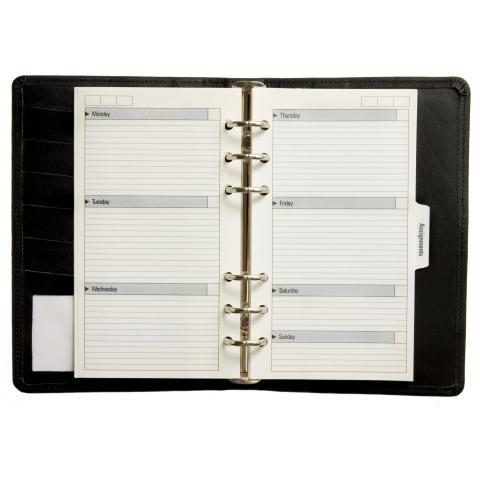
Are you a people-pleaser? Someone who goes out of their way to make others happy and can’t say no to anyone?
Of course, learning a language is all about developing new skills, embracing new experiences, and accepting challenges…so you’ll probably be saying yes quite a lot. Yet, you still need to know how to say no if you want to master the German language!

In this article, we’ll look at negation in German. You’ll learn how to make negative sentences, how to answer a yes-or-no question correctly, and how to politely decline an offer or invitation…without making anyone upset.
Sure, saying no isn’t easy for some of us. But I assure you it will be (at least from a language-learning point of view!), after you’ve read this.
Let’s waste no more time then, and look at how to form negatives in German!
 Table of Contents
Table of Contents
- Negative Sentences
- How to Answer with a No
- Other Useful Negative Expressions
- How Our Website Can Help
1. Negative Sentences
A negative sentence is one stating that something is false. In English, for example, we create these by adding the word “not” after a helping verb (do, have, be, etc.).
- Dave is not happy.
- We did not go to work today.
There are three main German negation words. The first one, as you might have guessed, is nein, which means “no.” To construct a negative sentence, however, we use two different words: nicht (not) and kein (not a / not… any / no).
Let’s have a look at how to negate sentences in German using these words.
A- When to Use Nicht
In German negation, nicht is used to negate verbs, nouns (including proper nouns like Maria, John, etc.), adjectives (including possessive adjectives), and adverbs.
Have a look at the examples below:
- With a VERB:
Wir warten nicht.
We are not waiting.
- With a NOUN that has a definite article (der, die, or das – “the”):
Ich kenne diesen Film nicht.
I don’t know this movie.
- With a PROPER NOUN:
Sie heißt nicht Mikaela.
Her name’s not Mikaela.
- With an ADJECTIVE:
Ich bin nicht fertig.
I am not ready.
- With a POSSESSIVE ADJECTIVE:
Das ist nicht meine Tasche.
That’s not my bag.
- With an ADVERB:
Er spielt nicht gut Fußball.
He does not play football well.
B- Where to Put Nicht
As you’ve probably noticed, nicht does not always appear in the same place within a sentence. There are a couple of things to remember when using it, so as to make sure you place it correctly in relation to other elements.
In a simple sentence, nicht goes at the end, after the verb.
- Wir warten nicht.
We are not waiting.
However, we rarely speak like that in everyday life, so let’s see how the behavior of nicht changes according to what you’re negating.

Get out of the bathroom, we are not waiting any longer.
It usually goes before an adjective or adverb, unless we’re talking about an adverb of time (e.g. später [later], früher [earlier], gestern [yesterday], morgen [tomorrow]), in which case nicht comes after the adverb.
- Das Essen schmeckt nicht gut.
The food doesn’t taste good.
- Sie kann heute nicht kommen.
She can’t come today.
We place nicht before prepositions:
- Er kommt nicht aus Bamberg.
He does not come from Bamberg.
C- When to Use Kein
Sometimes, you’ll have to use kein (instead of nicht) to form a negative sentence. Remember, kein can be translated as “not a…”, “not… any” or “no.”
Kein has to agree with the noun it describes, and it functions in the same way as the forms of the indefinite article ein.
We use kein in two ways, always with nouns. You can use it to negate a noun that has an indefinite article, or to negate a noun that has no article:
- Ich habe keine Geschwister.
I have no siblings.
- Sie haben keine Hausaufgaben.
They don’t have any homework. (Literally: They have no homework.)
2. How to Answer with a No
There are two types of questions: open-ended and close-ended. A close-ended question (Entscheidungsfragen in German) is usually one you can answer with a “yes” or a “no,” without having to give any other explanation.
In English, we usually say: “Yes, I do.” / “No, I don’t.”
In German, you could just say ja (yes) or nein (no), but you can also learn some more expressions to make your speech sound more natural. It’s common, for example, to give an explanation of why you’re saying no. This is also true in English, of course, and it’s more a matter of common sense than one of grammar or language rules!
To go with your negative responses, you could learn expressions like:
- Tut mir Leid. (I am sorry.)
- Leider (unfortunately / regrettably)
Another fun German way of saying “no” is the colloquial word nee, which is widely used at all levels of society. It’s a nice way of saying nein (which would sound quite rude on its own), without having to give any explanations!
- Hast du Hunger? (Are you hungry?)
Nee. (Nah.)
A second alternative to the formal nein is the colloquial word nö. This would not sound rude to a German speaker, and it’s considered a friendly way to say “no.”
- Triffst du dich heute mit Johannes? (Are you meeting Johannes today?)
Nö. (Nope.)

A: Are you hungry? / B: Absolutely not.
On the other hand, you can use the following phrases to say “Absolutely not!”
- Auf gar keinen Fall.
Under no circumstance. - Überhaupt nicht.
Definitely not. - Absolut nicht.
Absolutely not.
Doch in German
Actually, there’s another way of answering close-ended questions in German that we haven’t mentioned yet: Doch.
While studying the language, you might have noticed that doch and ja both mean “yes” in German…but they’re used in different ways. As you know, ja is the usual word for “yes” and is the opposite of “no” (nein).
- Kommst du mit? (Are you coming?)
Ja. (Yes.)
When do we use doch, then? Doch is used when answering a negative question with a yes, or to contradict a negative statement:
- Kommst du nicht mit? (Aren’t you coming?)
Doch! (Yes [on the contrary], I am!)
- Du bist nicht intelligent. (You aren’t intelligent.)
Doch. (Yes [on the contrary], I am.)

The game is on. Aren’t you coming?
Doch can also be used with a similar meaning as the English word “indeed,” to stress a contrast or a certainty.
- Hast du das gemacht? (Did you do it?)
Ich habe es doch gemacht. (Indeed, I did do it.)
3. Other Useful Negative Expressions
If you want to sound like a native, have a look at some of the most common expressions used in negative sentences.
Did you know, for example, that there are two ways of saying “never”? They are nie and niemals. These two words are interchangeable, but nie is more commonly used. If you use these words, you won’t need to use nicht or kein.

I don’t understand anything.
Some other words that you’ll find useful in negative sentences are:
- A- Noch nicht
This means “not yet” and can also be used for more emphasis:
Ich bin noch nicht fertig.
I’m not finished yet.
- B- Nichts
This means “nothing” or “not anything”:
Ich verstehe nichts.
I don’t understand anything. (Literally: I understand nothing.)
- Niemand and Nirgendwo
These respectively mean “no one” and “nowhere.” Niemand needs to change according to the case, while nirgendwo always stays the same.
Niemand hat mir geholfen.
No one helped me.
Ich kann das Auto nirgendwo sehen.
I can’t see the car anywhere.
- C- Weder…noch
This means “neither…nor” and it works the same way as in English:
Er spricht weder Englisch noch Deutsch.
He speaks neither English nor German.
Again, unlike in some other languages (like Italian), in German we do not do “double negation.” So if you use these words, you will not need to repeat the words nicht or kein.
Here are the positive/negative pairs of the words we’ve just seen. Knowing how to recognize and use them correctly will be a big step in your language-learning journey.
- etwas / alles—nichts (something/everything—nothing)
- jemand—niemand (somebody/anybody—nobody)
- irgendwo—nirgendwo / nirgends (somewhere—nowhere)
- immer / oft / manchmal—nie / niemals (always / often / sometimes—never)
- mit—ohne (with—without)
4. How Our Website Can Help
If you want to learn more German vocabulary and grammar, make sure you check out GermanPod101.com. Here, you’ll find all the content you need to make your language learning journey as interesting and as pleasant as possible.
Practice your listening skills with podcasts and audio lessons, build your vocabulary with word lists and key phrases, and learn useful strategies for learning German more efficiently.
If you want to learn German in order to travel in Germany and other European countries, don’t miss our travel Survival Course. Knowing the language will help you be safe during your trip abroad, and being able to communicate with the locals in their native tongue will make your adventures even more unforgettable…
I hope that you’ll be able to say YES! to all their invitations and offers…but, well, at least now you know how to say “no” properly without sounding rude!
And, if you’re studying German for work or study, make the commitment and start using our member-only features to gain access to the best available German content. The resources available will make learning German feel like a walk in the park, and you’ll be able to reach your language-learning goals in no time at all!
Before you go, we would love to hear from you. How did this article help you? Is there anything about negation in German you’re still unsure about? We’ll do our best to help!









































 Table of Contents
Table of Contents



















 Table of Contents
Table of Contents















